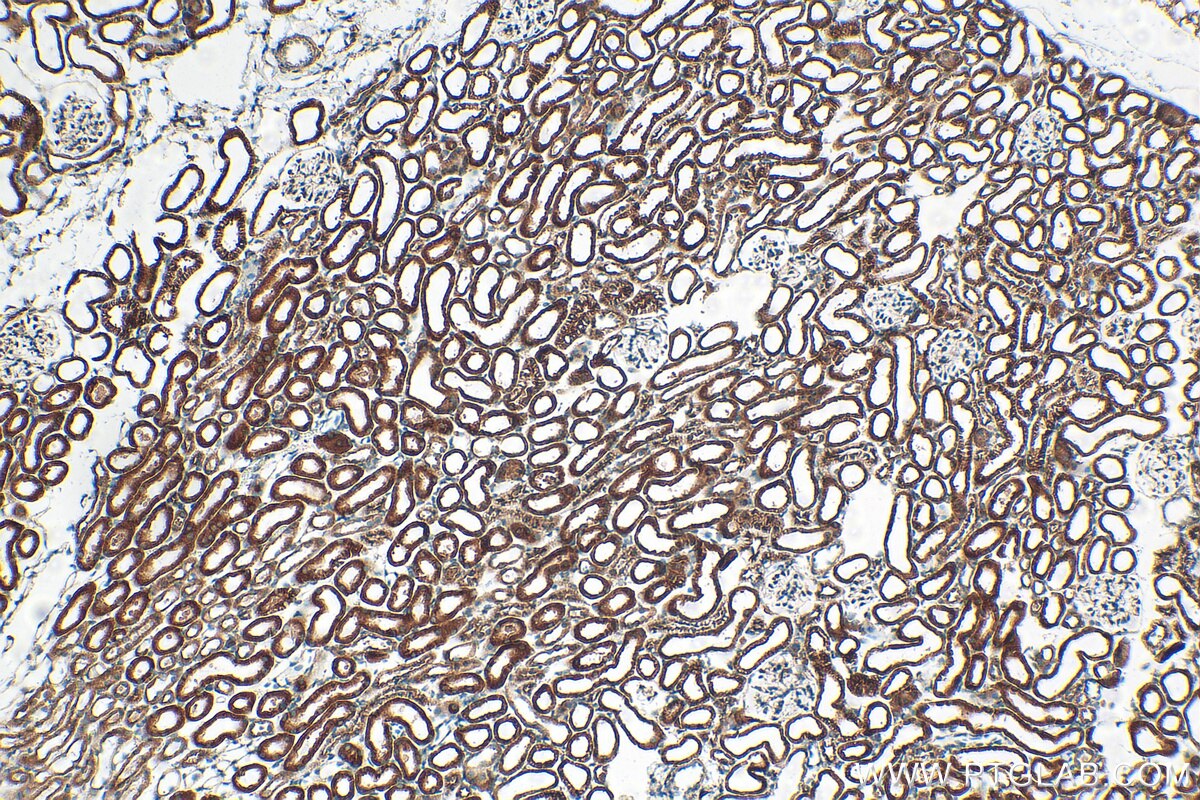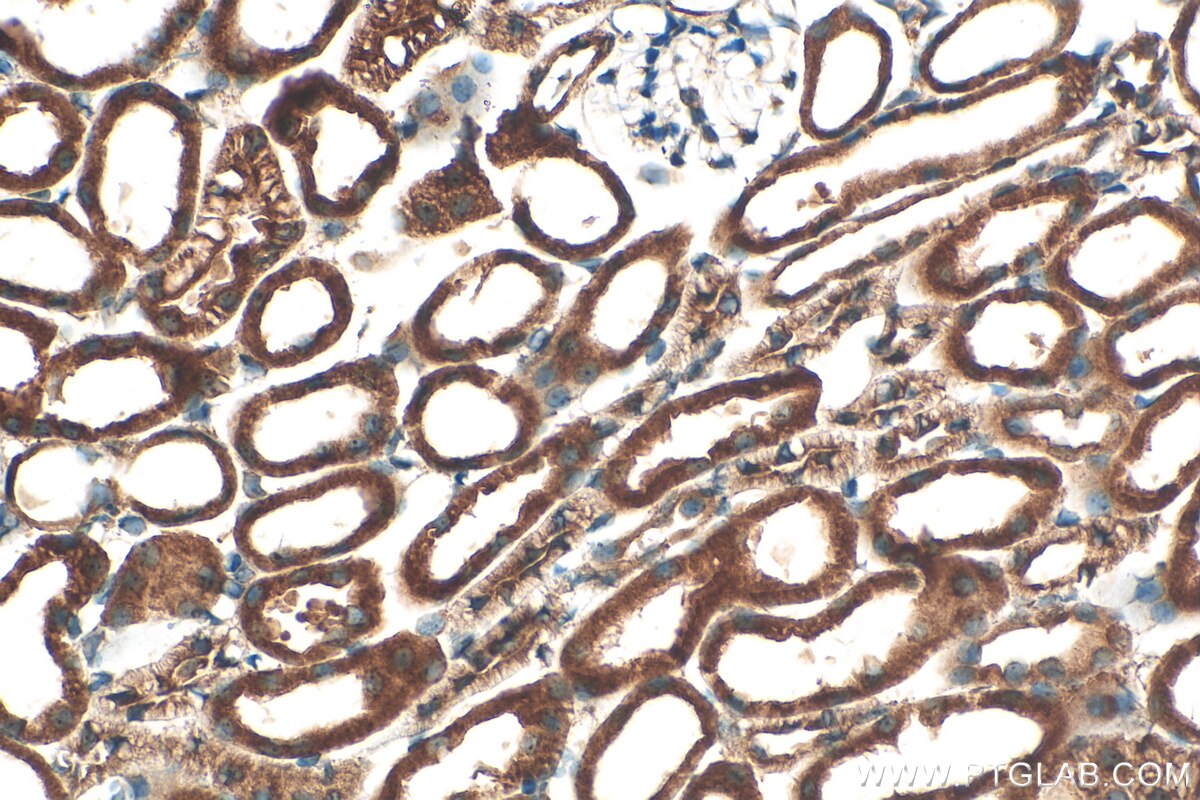Serpina3g Polyclonal antibody
Serpina3g Polyclonal Antibody for IHC, ELISA
Host / Isotype
Rabbit / IgG
Reactivity
mouse
Applications
IHC, ELISA
Conjugate
Unconjugated
Cat no : 55353-1-AP
Synonyms
Validation Data Gallery
Tested Applications
| Positive IHC detected in | mouse kidney tissue Note: suggested antigen retrieval with TE buffer pH 9.0; (*) Alternatively, antigen retrieval may be performed with citrate buffer pH 6.0 |
Recommended dilution
| Application | Dilution |
|---|---|
| Immunohistochemistry (IHC) | IHC : 1:50-1:500 |
| It is recommended that this reagent should be titrated in each testing system to obtain optimal results. | |
| Sample-dependent, Check data in validation data gallery. | |
Product Information
55353-1-AP targets Serpina3g in IHC, ELISA applications and shows reactivity with mouse samples.
| Tested Reactivity | mouse |
| Host / Isotype | Rabbit / IgG |
| Class | Polyclonal |
| Type | Antibody |
| Immunogen | Peptide 相同性解析による交差性が予測される生物種 |
| Full Name | serine (or cysteine) peptidase inhibitor, clade A, member 3G |
| Calculated molecular weight | 49 kDa |
| GenBank accession number | NM_009251 |
| Gene symbol | Serpina3g |
| Gene ID (NCBI) | 20715 |
| RRID | AB_3086441 |
| Conjugate | Unconjugated |
| Form | Liquid |
| Purification Method | Antigen affinity purification |
| Storage Buffer | PBS with 0.02% sodium azide and 50% glycerol pH 7.3. |
| Storage Conditions | Store at -20°C. Stable for one year after shipment. Aliquoting is unnecessary for -20oC storage. |
Background Information
Serpina3g was predicted to enable serine-type endopeptidase inhibitor activity. Acts upstream of or within response to cytokine and response to peptide hormone. Predicted to be located in cytoplasm and nucleus. Serpina3g was predicted to be active in extracellular space. Human ortholog(s) of this gene implicated in chronic obstructive pulmonary disease; cystic fibrosis; and vasculitis
Protocols
| Product Specific Protocols | |
|---|---|
| IHC protocol for Serpina3g antibody 55353-1-AP | Download protocol |
| Standard Protocols | |
|---|---|
| Click here to view our Standard Protocols |



